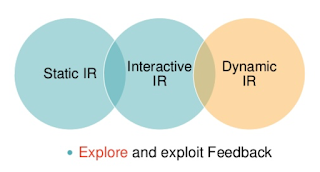[Talk Summary 3] Personalized Recommendations using Knowledge Graphs
Rose Catherine from Language Technologies Institute, Carnegie Mellon University presented the talk Personalized Recommendations using Knowledge Graphs by 09/23/2016. At the beginning, Rose introduced general ideas about personalized recommendations and gave some examples such as Amazon recommending customers products they would like to buy and introducing movies to users based on their favorite ones. And then, Rose focused on improving the performance of recommender systems using knowledge graphs (KGs). She introduced other works that use the combination of content-based and collaborative filtering techniques and connected concept-based KGs on recommendations. To improve the current methods, Rose's research group investigates three techniques for making recommendations. Those KG-based recommendations use a probabilistic logic system called ProPPR which stands for Programming with Personalized PageRank. The first approach is EntitySim tha
